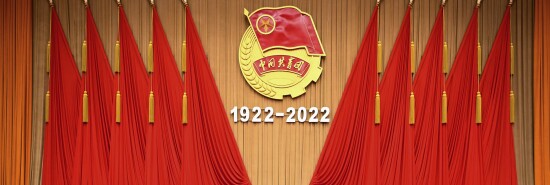
Europe cowers and kisses up to China
Washington Examiner
Video Embed
A phone call this week between Xi Jinping and Vladimir Putin prompts one to wonder whether European leaders will speak up about Beijing’s failure to criticize Russia’s invasion of Ukraine and its continued aggressive war there.
Russia’s war since February has led to the worst conflict in Europe since 1945. Yet European leaders such as France’s Emmanuel Macron and Germany’s Olaf Scholz kowtow to Xi to catch falling crumbs of trade while tolerating his duplicity on the issue.
XI MOCKS MACRON AND SCHOLZ WITH NAVAL DRILLS
If the European Union is unable to demand that its trade partners unequivocally condemn Russia, a move far short of sanctions, then the EU’s legitimacy as a political entity is open to question.
This shouldn’t be difficult for the EU. A central plank of China‘s global diplomatic narrative is its assertion that territorial sovereignty is sacrosanct. China’s ambassador to the United Nations encapsulated his nation’s arguments here in an August address to the Security Council. “We must take a clear-cut stand, always respect the sovereignty and territorial integrity of all countries,” the ambassador said, explaining that “if this principle is ignored and abandoned, the whole system of international law will be shaken to its roots. The world will return to the law of the jungle, and common security will be totally out of the question.”
Strong words that, if turned into action, would see China’s unambiguous and unequivocal condemnation of Russia’s invasion of Ukraine. It is, of course, clear that China has no principled or generally applicable regard for territorial sovereignty. It simply uses high-minded rhetoric to justify its domestic repression and claims of absolute authority over Taiwan.
But even though China is utterly hypocritical, the EU can cite it to demand clear condemnation by Xi of the Russian leader’s destruction of Ukrainian territorial sovereignty. Even if Xi knows he is spouting humbug, a statement from him about Russia and Ukraine would enhance EU influence.
Sadly, Xi will probably do nothing of the sort. And just as Xi is unlikely to condemn Putin, so also is the EU unlikely to criticize Xi. To this diminished and cowardly pass has Europe come.
Xi held joint Sino-Russian naval exercises off Japan’s coast recently and obviously has zero regard for the EU’s polite requests that he help rather than hinder international stability. Instead, the Chinese leader made a strategic decision to consolidate military-to-military cooperation with Russia. He doesn’t care if it means sacrificing Europe’s stability and peace.
Xi cannot help noticing that the EU cowers even when he threatens Western security. Scholz trumpets trade and writes essays about the need to avoid alienating Beijing. Macron offers vacuous rhetoric.
The more France and Germany tolerate Xi’s double-dealing, the more damage they do to their own EU agenda. The credibility of Macron’s vaunted European “strategic autonomy” withers if the EU cannot muster the courage to demand at least lip service to a principle Beijing cites cynically for its own benefit.
CLICK HERE TO READ MORE FROM THE WASHINGTON EXAMINER
